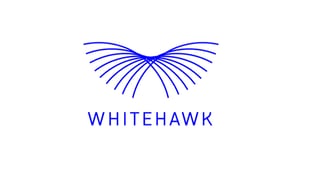Donna Warner
- Jul 2, 2020
- 4 min read
Is Cybercrime the next pandemic?
In terms of environmental and digital disruption, 2020 has been like no other year. Australia was hit by drought and bushfires, the coronavirus has spread across the world, and now Prime Minister Scott Morrison has revealed that the country has been under widespread and sophisticated cyberattacks the whole time.
In response to the current ever-evolving and growing range of cyberattacks, the digital risk and cybersecurity industries are expanding both in innovation and with M&A opportunities, much to the interest of investors.

Who is attacking us?
In most cases, cyberattacks are carried out for one of three reasons: political, personal or financial.
The recent array of attacks on Australia earlier this month reported by Morrison, were political and the government's analysis has shown the attacks to be sophisticated foreign state actor originated, but the attribution evidence has not yet been compiled to determine if this activity was related to China as some reports suggest.
Terry Roberts, CEO, Whitehawk (ASX: WHK) provides insightful perspectives about the cyberattack in an article published in The Australian this month and what it means and where to from here.
NOTE: The article in reference was originally posted on The Australian. You can view the original article here.
Terry Roberts is former Deputy Director of US Naval Intelligence and CEO/Founder of ASX-listed cybersecurity firm WhiteHawk (WHK).
For State Actors, Cyber methods are accessible, targets often unprepared and the impact can be substantial in disruption, publicity or cost. Last year, a naval base in Perth was also attacked, with Iran the lead suspect.
Sometimes, the work is done for personal or activist ('hacktivist') reasons. Groups like Anonymous go after individuals, businesses and causes that generally have opposing views or have been found to be unethical in some way.
But the real growth has come from cybercriminals, hackers who are in it for financial gain. Why put yourself at risk when you can commit online crime and fraud from your home. Not to mention it is tougher to investigate and prosecute. To these cybercriminals, everyone is a target, everyone has valuable identity, financial or proprietary data that can be extorted or sold on the Dark Web.
Who is being attacked?
All Government and Industry Sectors and Home Offices are being targeted.
Recently, The Canberra Times reported that hospitals in Australia were being attacked during the height of Covid-19 – a time when they were at their busiest (and most distracted), showing that there's never a time to let up on cybersecurity.
The ABC also reported last month that businesses in Australia are being increasingly targeted by cyberattacks, including the likes of Toll Group and My Services NSW.
With more business being carried out online over networks, workflow can be disrupted from afar and at huge cost to Australian businesses.
This kind of attack – known as ransomware – is one of the growing security concerns of businesses of all sizes, as is phishing.
Phishing attacks are getting more sophisticated and, importantly, they don't always go straight for the intended target when it's easier to find a weakness elsewhere.
For example, rather than going straight for the CEO, a hacker might test other members of a company and try to get access to the business through any means possible. This is where digital literacy education at all levels and foundational security protocols are vital.
The growth of cybersecurity
As cyberattacks increase and grow more sophisticated, so too does defence in the form of Cyber Risk Assessments, SaaS Cybersecurity solutions and online employee awareness training. Cybersecurity comes in many guises, from firewalls and password managers to cyber sensors and machine learning, giving businesses plenty of ways to defend themselves from the breadth of threats.
Prime Minister Scott Morrison confirmed the Government would increase its spending on strategy and protection following a series of sophisticated state-based attacks. Some say this is retaliation for the insinuation of the Coronavirus, or as Trump recently reminded us at his not-sold out rally, the China Virus Companies across Australia will have to heighten their spending across Cyber Security too – which both challenges and positively buoys up the industry.
WhiteHawk Limited (ASX: WHK) a Barclay Pearce Capital client is at the forefront of this industry and is receiving a lot of interest at the moment.
 WhiteHawk is focused on next-generation approaches that leverage publicly available data sets, Artificial Intelligence (AI) based analytics, online risk platforms that scale to identify, prioritise and mitigate a breadth of digital age risks in near real-time. Their methods have been tested and evolved with government departments and fortune 500 companies. Using machine learning and cyber know any business can access their online and virtual service, to help you discover, learn, receive immediate online matches to top solutions, find insights, affordable vendor products and services, or chat with smart cyber advisors in real-time, so you can own your cyber risk and success story.
WhiteHawk is focused on next-generation approaches that leverage publicly available data sets, Artificial Intelligence (AI) based analytics, online risk platforms that scale to identify, prioritise and mitigate a breadth of digital age risks in near real-time. Their methods have been tested and evolved with government departments and fortune 500 companies. Using machine learning and cyber know any business can access their online and virtual service, to help you discover, learn, receive immediate online matches to top solutions, find insights, affordable vendor products and services, or chat with smart cyber advisors in real-time, so you can own your cyber risk and success story.
To keep up to date with what's happening with WhiteHawk and the cybersecurity industry as a whole, subscribe to the Whitehawk Chairman’s List.
Share Link






